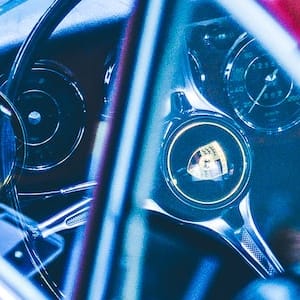pull over: Idiom Meaning and Origin
What does ‘pull over’ mean?
The idiom "pull over" means to move a vehicle to the side of the road and stop it. This phrase is typically used when a driver is asked or chooses to stop their vehicle for a specific reason.

Idiom Explorer
The idiom "run over" means to hit or knock down someone or something with a vehicle. It can also refer to reviewing or reiterating something quickly, and it is often used to describe time that exceeds the original plan.
The idiom "red light" means to stop or prohibit something, often due to a warning or restriction. It can refer to a literal traffic signal or be used metaphorically to indicate the need to cease an action or behavior.
The idiom "put the brakes on" means to slow down or stop a process or action. It is often used to describe taking measures to control or limit something that is happening too quickly or becoming out of control.
The idiom "put an end to" means to bring something to a conclusion or stop it completely.
The idiom "pull up on" means to arrive or show up at a location, often unexpectedly or with a sense of urgency.
The idiom "pull up" means to stop or bring something to a halt. It can also refer to stopping oneself or someone else from behaving in a certain way. The phrase can be used in various contexts such as driving, sports, or correcting someone's behavior.
The idiom *pull the trigger* means to make a decision or take action, especially when it involves something significant or irreversible.
The idiom "pull out of the fire" means to save or rescue someone or something from danger or a difficult situation.
FAIL
The idiom "pull up" is closely related to "pull over." While "pull over" refers to stopping the vehicle at the side of the road, "pull up" specifically implies bringing the vehicle to a stop and parking it in a designated area. When someone instructs another person to "pull up," they are asking them to find an appropriate parking space and come to a complete stop. This expression is commonly used in situations where parking is required, such as at a gas station, a parking lot, or in front of a specific location. It is important to note that "pull up" is often used interchangeably with "pull over" in everyday conversation, as both expressions convey the idea of stopping the vehicle.
Another related idiom is "pull up on." This expression is used to instruct someone to bring their vehicle to a stop near a specific location or object. It implies the need to stop the vehicle in close proximity to the designated spot or target. For example, if someone says, "Pull up on the curb," they are asking the driver to bring the vehicle to a stop right next to the curb. Similarly, if someone says, "Pull up on the side of the building," they are instructing the driver to stop the vehicle near the side of the building. "Pull up on" is commonly used in contexts where precision or proximity to a certain point is required.
The idiom "lay over" is another expression related to "pull over." While "pull over" refers to a temporary stop on the side of the road, "lay over" implies a more extended pause or stopover during a journey. This expression is commonly used in the context of air travel, where a layover refers to a scheduled stop between flights at an intermediate location. In this sense, "lay over" can be seen as a more deliberate and planned stop, whereas "pull over" is often associated with more immediate or spontaneous actions.
"pull away" is another idiomatic expression that is related to "pull over." While "pull over" refers to coming to a stop, "pull away" indicates the opposite action of starting or resuming motion after a stop. When someone says, "Pull away," they are instructing the driver to begin moving again after a temporary pause. This expression is commonly used in situations where the vehicle has been brought to a stop, such as at a red light or a stop sign, and needs to start moving again once the road is clear or the signal changes. "Pull away" can also be used metaphorically to indicate starting or resuming an activity or process after a break or interruption.
The idiom "put a stop to" is closely connected to the concept of "pull over" as well. While "pull over" refers to physically stopping the vehicle, "put a stop to" implies putting an end to something or taking action to prevent it from continuing. When someone says, "Let's put a stop to this" or "We need to put a stop to that," they are expressing the need to cease an activity, behavior, or situation. This idiom can encompass a wide range of scenarios, from ending an argument or disagreement to stopping a harmful or negative practice. "Put a stop to" can be seen as a broader concept that encompasses the idea of bringing something to a halt or cessation.
The idiomatic expression "pull over" is primarily associated with the act of bringing a vehicle to a stop at the side of the road. It is commonly used in various driving-related situations and has also gained figurative usage to imply pausing or interrupting ongoing activities. Related idioms such as "pull up," "pull up on," "lay over," "pull away," and "put a stop to" expand upon the concept of stopping or pausing, adding nuances and variations to the core meaning of "pull over." These idioms provide additional context and specificity in different scenarios, further enriching the language and communication surrounding the act of stopping or interrupting.
Example usage
Examples of how the idiom "pull over" can be used in a sentence:
- He saw the police lights behind him and decided to pull over to the side of the road.
- As the rain started pouring heavily, the driver had to pull over and wait until the storm passed.
- The truck driver felt drowsy, so he pulled over at the next rest area to take a nap.
More "Driving" idioms



